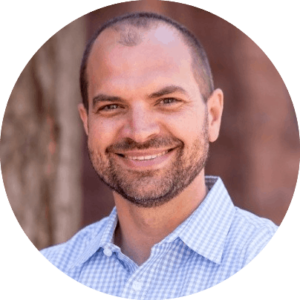From intern developer (one of only seven total devs) to CTO (with a team of 450 devs) at Pearson Vue, Ron Lancaster knows a thing or two about rising through the ranks in a rapidly growing company. After 20 years in that realm, however, it was time to switch gears and enter the startup world.
In his CTO Spotlight, Lancaster talks about that transition, the “danger” of hiring corporate people for startup roles, and all things Structural, the Scott Burns-led, “all-in-one people directory.”
Hit the lights.
Special thanks to Livefront for sponsoring our CTO Spotlight series. Livefront works with partners to design and build world class digital products. Their senior level team of engineers and product designers are guided by four core principles, and are excited to hear about your next project!
Check out a short excerpt from the interview!
Jac Stark: Let’s start off with just talking about your journey to where you are now. You’re a pretty seasoned technical leader. Where did all of this begin?
 Ron Lancaster: I joined Structural two years ago. Before that, I worked at Pearson Vue, and I actually spent 20 years there.
Ron Lancaster: I joined Structural two years ago. Before that, I worked at Pearson Vue, and I actually spent 20 years there.
Way back in 1997, right out of college, I was looking for my first job. The HR individual at Vue at the time knew some folks and reached out to me and said, “Hey, why don’t you try out for the company?” At the time, the company had only been in business for a couple of years, and they had a team of seven developers on.
After a little bit of time, I was able to join up as their first intern developer, joining this group of highly seasoned veteran veneers. And it was just incredible; the opportunities that the company kept offering throughout as it grew. I was able to grow my own career and I’m forever indebted to that first leap that the company was able to take on me.
Nels Pederson: That’s cool. 20 years!
Ron Lancaster: Yeah. I started out as an intern developer. When I left, I was CTO. We had started with seven developers, and when I left, we had a team of 450 people. So, you know, tremendous growth.
Vue is one of these real success stories here in the Twin Cities that doesn’t come up as often because it’s, you know, high stakes testing and people think of multiple choice questions. They don’t really think of how cool that company actually is.
“There’s nothing quite prepares you for actually joining a smaller organization that is fighting for customers and survival.” — Ron Lancaster
So, a couple of years ago, I was looking for the next thing. What am I going to do after a 20-year journey with an organization? I saw Scott Burns was getting ready to start in a stealth mode. I reached out to him. We had a number of conversations over a period of time where he was kind of vetting, you know, is this corporate guy really going to be good at startup or not? And I will say there’s always a danger with startups trying to pick up corporate people, because there is some clear culture shock that happens. Likewise, I was also really vetting Scott and the structural organization with the company he was building to say, am I ready to make hopefully what’s another 20-year commitment?
And the last two years have been amazing.

Later in the interview.
Jac Stark: So, you’ve been there for two years now. Can you talk a little bit more about that culture shock that you experienced?
Ron Lancaster: Yeah. I spend a lot of time thinking about what’s it like to be in a startup? I was able to do some mentoring through some local programs here…. but there’s nothing quite prepares you for actually joining a smaller organization that is fighting for customers and survival. And the reality is that you have to do whatever it takes that day to make things happen. That’s very different than a large organization. [They] might have different politics, and there’s a lot more governance and maybe some bureaucracy to work through that just comes naturally with being a large organization. They’re also very flush with resources and talented people. You can basically go to anyone and hopefully they’re also steeped with domain expertise.
Startups, and especially Structural, by comparison, have really bright and talented people, but there are not as many of us. So you’re faced with doing a particular job that day that may be outside of your job title, and that’s just what’s required.
![]()
Get the story from other Minnesota CTOs!






